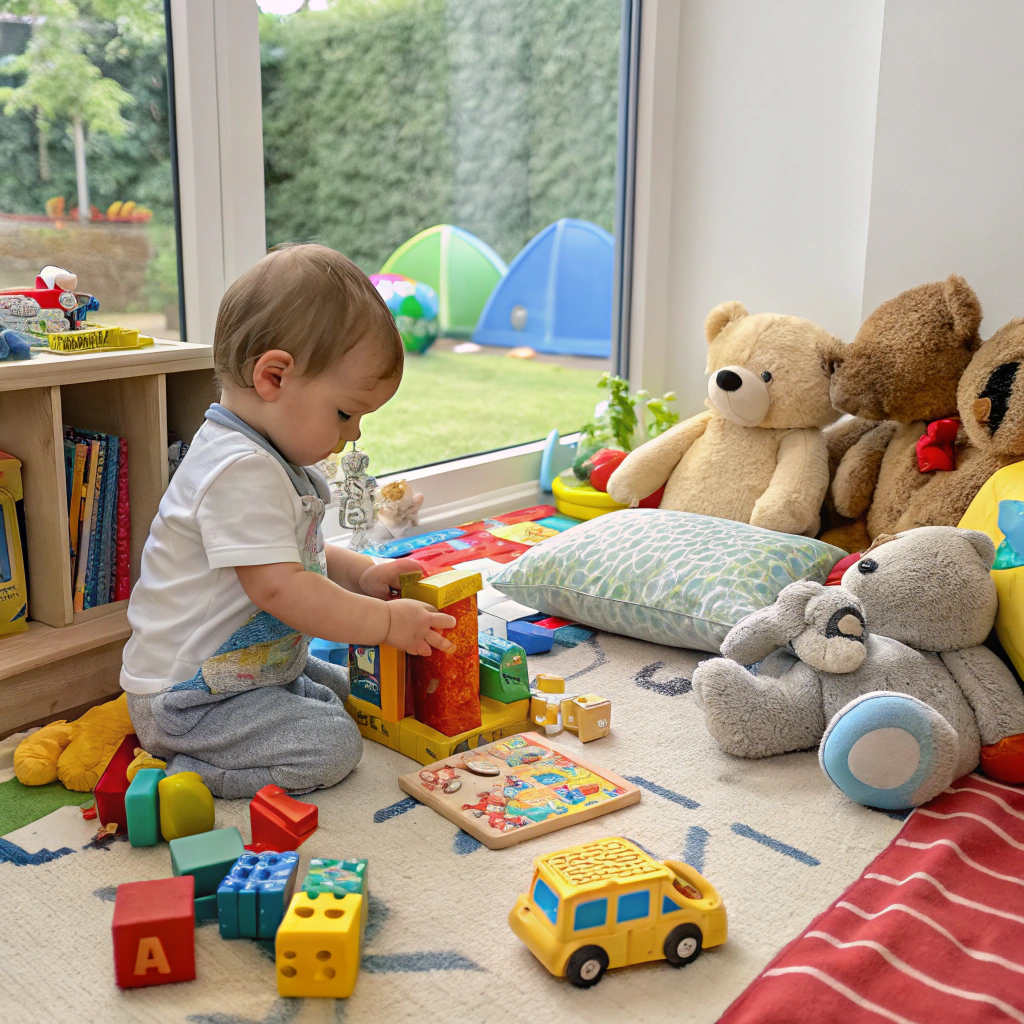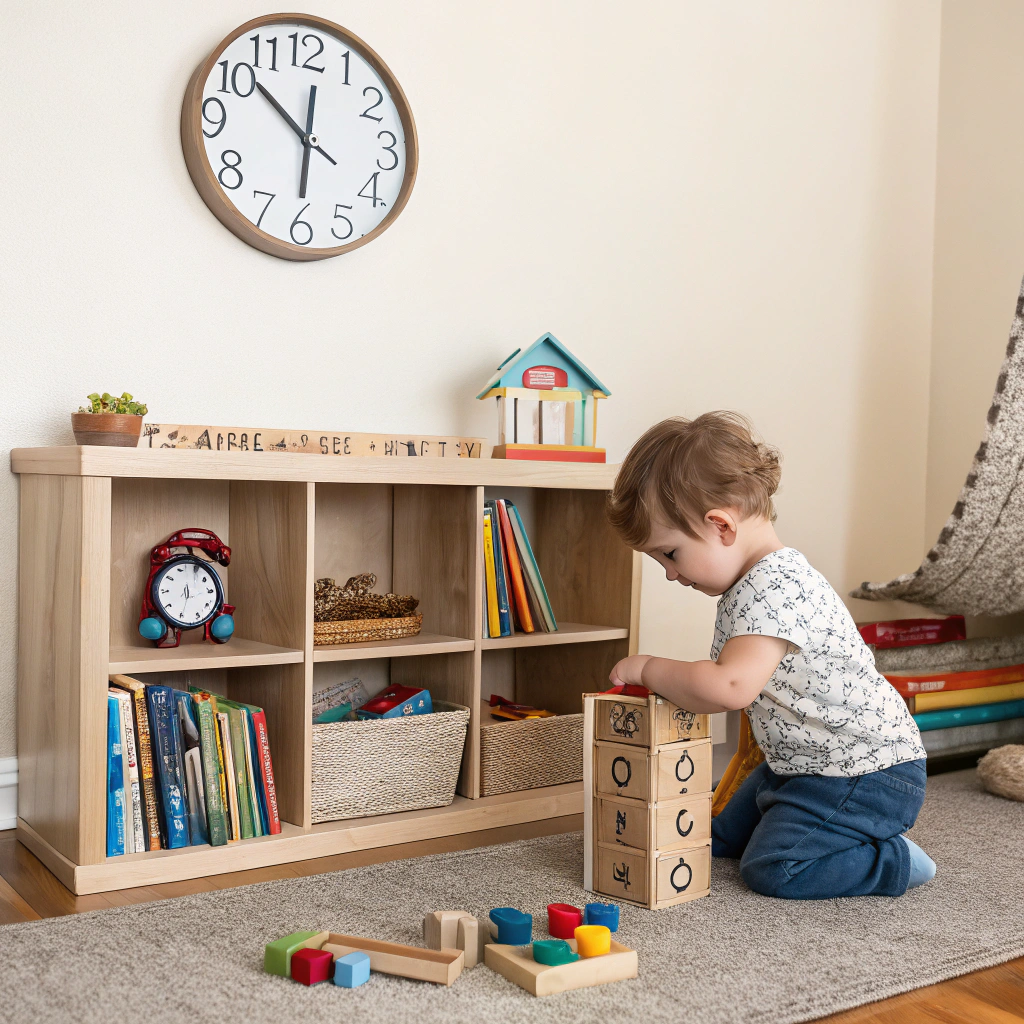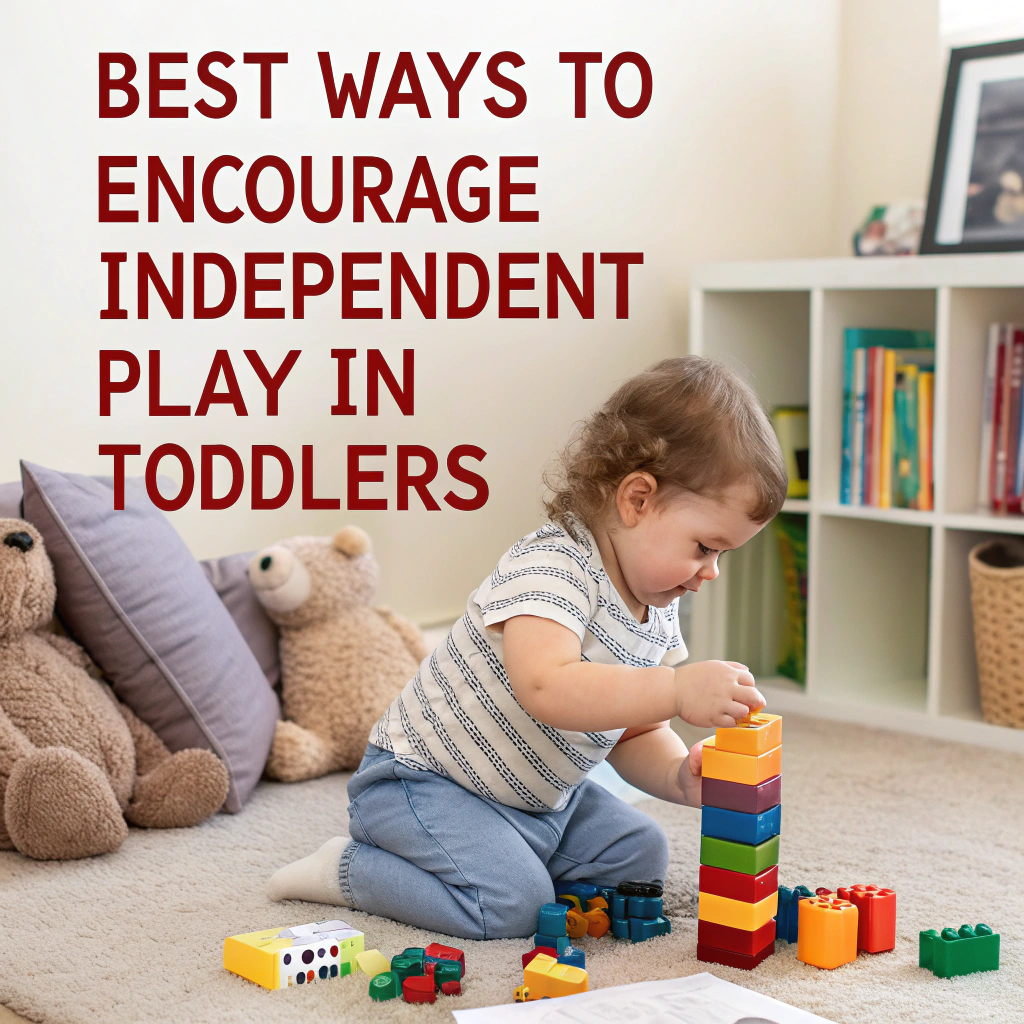Independent play is a crucial skill for young children, and learning how to encourage independent play in toddlers can make a big difference in their development. By fostering self-reliance, creativity, and problem-solving abilities, independent play helps toddlers build confidence while exploring the world around them. In this guide, we’ll explore effective ways to create the perfect environment and provide tools to support your child in playing independently.
1. Create a Safe and Engaging Environment to Encourage Independent Play in Toddlers
A well-organized and engaging environment sets the stage for successful independent play. When toddlers feel secure in their surroundings, they’re more likely to explore and play on their own.
Set Up a Dedicated Play Area
Design a specific area in your home where your toddler can play freely. This space should be safe, free from hazards, and comfortable, with soft rugs, cushions, or mats. A familiar play zone helps toddlers associate it with fun and independence.
Stock Up on Open-Ended Toys
Offer toys that inspire creativity and imagination, such as building blocks, dolls, toy vehicles, and art supplies. These open-ended toys give toddlers the freedom to create their own scenarios and stay engaged for longer periods. Toys that encourage role-playing, like play kitchens or doctor kits, are also excellent for fostering independent play.
Keep the Space Organized and Rotated
Declutter the play area to avoid overwhelming your toddler. Keep a manageable selection of toys available, and rotate them weekly to maintain your child’s interest and excitement. Fresh toys spark curiosity, encouraging independent exploration.
2. Gradually Build Up Independent Play Time for Toddlers

Encouraging independent play in toddlers is a gradual process. If your toddler is accustomed to having you by their side, you’ll need to take small, consistent steps to help them adjust to playing alone.
Start Small with Supervised Independence
Begin with short play sessions, around 5–10 minutes, where your toddler plays independently while you remain close by. Gradually increase this time as they become more comfortable and confident in entertaining themselves.
Offer Reassurance Without Interrupting
Toddlers may check in with you frequently during independent play. Respond calmly but avoid taking over their activities. Encourage them with phrases like, “You’re doing a great job playing with your blocks!” This boosts their confidence in their ability to play alone.
Model Independent Behavior
Sometimes toddlers mimic what they see. Engage in an independent activity, like reading or working, while they play. By observing you focusing on your task, they’ll learn that it’s okay to entertain themselves too.
3. Encourage Problem-Solving During Independent Play in Toddlers
Problem-solving is a key benefit of independent play. It helps toddlers build critical thinking skills and resilience. Letting them face small challenges during play fosters self-reliance.
Resist Over-Intervening
When your toddler encounters minor frustrations, such as a block tower falling over, avoid stepping in right away. Encourage them to try again on their own with gentle guidance if needed. Problem-solving builds confidence and teaches persistence.
Provide Toys with Challenges
Introduce toys that naturally involve problem-solving, like puzzles, stacking toys, or shape sorters. These activities keep toddlers engaged while encouraging them to figure things out independently.
Encourage Exploration
Allow toddlers to explore their environment safely. Whether it’s playing with nature-based toys or sensory bins, exploration encourages curiosity and keeps them immersed in their own discoveries.
4. Set a Routine and Be Patient

Consistency is key when building any new habit, and independent play is no exception. Establishing a regular routine ensures that your toddler knows what to expect and gradually builds their comfort with self-led play.
Set a Daily Independent Play Schedule
Include independent play in your toddler’s daily routine, such as after breakfast or before nap time. Predictable routines help toddlers transition smoothly into independent activities, as they know what’s coming next.
Balance Playtime with Bonding Time
While encouraging independent play in toddlers is important, make sure to balance it with quality one-on-one time. This reassures them of your presence and strengthens your bond, making them more willing to explore independently.
Celebrate Milestones and Progress
Acknowledge your toddler’s efforts and celebrate their independent play milestones. Whether they successfully solve a puzzle or play alone for 20 minutes, offering praise like “You did that all by yourself!” reinforces their achievements and motivates them to continue.
Conclusion
Encouraging independent play in toddlers requires patience, consistency, and a nurturing approach. By creating a safe space, using the right toys, and gradually increasing playtime, you’ll empower your child to grow more confident, imaginative, and self-reliant. Remember, independent play is not just beneficial for toddlers—it also provides parents with valuable moments to recharge while knowing their child is engaged and thriving.

